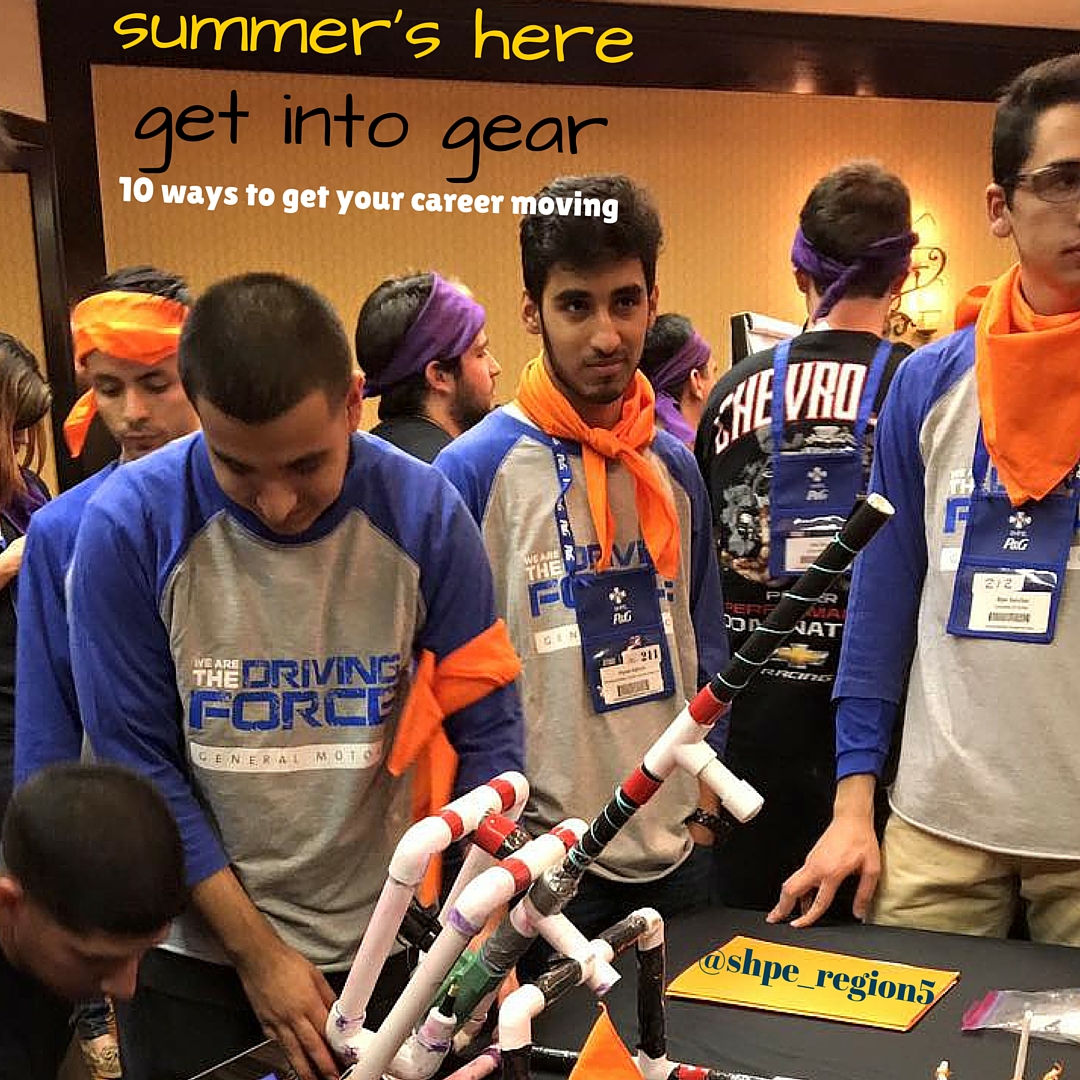Summer time is productive time: 10 ways to take advantage of it and beat summer boredom.
BY LUISA FLOREZ
The weather is warmer, the days are longer and for many, school is out. As your days become class-free and free hours pop-up, after a week of relaxing, you may suddenly come down with a case of boredom. Summer is not the season to be bored – in fact it’s the time to really get ahead in the game and work towards your personal, student and professional development. It’s a time where you can dedicate yourself to your passions and if used wisely, these days can make your next semester of school run more smoothly. Your experience over the summer can be the new conversation starter that helps you land your next internship or job.

Don’t know where to start? Still a little brain dead from school? Here are 10 things you can do to help you get started!
1) Get an internship
Internships are a great way to spend your summer. Whether you pursue an engineering internship or want to venture in something different like finance or policy, internships provide you with valuable experiences and can help you figure out what you’d like in your career. Don’t know where to begin to look? Ask your school’s career service or your SHPE chapter. Bonus: Many are paid!
2) Conduct research
Ever see the cool things engineers and scientists do, and wonder how they came up with it? Getting research experience can give you hands-on experience into the procedure and it’s just as valuable as getting an internship. If your university or college has professors that do research, go talk to them and ask them about it. Many times, professors will allow undergraduate students to work in their labs, and if they don’t have room, they can usually point you in the direction of another professor who might. Doing research during the summer allows you to immerse yourself in the experience without having to worry about classes. If you’re looking for a more structured application, consider applying for Research Experiences for Undergraduates programs run through the National Science Foundation (https://www.nsf.gov/crssprgm/reu/).
Bonus: It looks great for graduate school!
3) Take summer classes
Summer classes may not sound very intriguing but it’s a practical way to take care of your course requirements. By taking only one or two classes versus five, you can dedicate your time to those classes and hopefully lighten your study load during the next semester.
4) Take free online classes
These days, you can find almost anything on the internet – including free classes. Whether it’s learning differential equations or Portuguese, you can most likely get your own personal teacher from the comfort of your computer. A good website to check out is Khan Academy. You can find videos from subjects like math and finance to computer programming. As technology becomes more embedded in today’s industries and research, honing your coding skills is imperative. University of Texas at Austin senior mechanical engineering student Monica Parucho used codeacademy.com to teach herself python. She really enjoyed the website because it has several modules and mini-projects. Using this website, Monica taught herself python during the school semester, something she wishes she had done instead during the summer. “I think learning code over the summer would have given me a huge advantage in my classes. It’s a pretty big learning curve, and I fell behind quite a bit just because I wasn’t familiar with python, the language we used. Learning code is a great thing to do over the summer because once you know it, it’ll help you in every single one of your classes or projects. It changes the way you think through all your problems, and it’s pretty exciting to recognize how things as complicated as phone apps or computer simulations work at the coding level.”
5) Engineer your own project
You don’t need to be in a lab, be in a classroom or have an internship to engineer and science. Create your own project! Not only will it feel extremely rewarding, but recruiters will be impressed as well. You will not only improve your engineering skills, but you will also show incentive and project management skills. Just ask Monica Parucho and Eduardo Hernandez, also a senior mechanical engineer at the University of Texas at Austin. This summer, they plan on building a mechanical pong table from scratch. Monica explains,“the table will be an electromechanical rendition of the classic game, and will use servo motors, a raspberry pi, and magnets to allow people to play in 3D! Not only is having projects like these a really fun way to exercise those engineering skills and put them to the test, but if, for instance, you do not have an internship lined up, this is something you can show off when you’re networking at career fairs. If I was a recruiter, this would definitely make you stand out to me. It shows that you’re actually excited about engineering, and you are willing to take the initiative to make something.”
6) Get a Summer Job
Working during the summer is a good way to get some extra cash. Whether you do it to pay for school, or to save for unique opportunities like studying abroad, you’ll develop skills that are sought in graduate programs and in industry.
7) Grab your camera and travel
In addition to the excitement traveling includes, getting to know a place you are not familiar with is one of the most valuable experiences you can have. You develop soft skills and broaden your horizons. You don’t even need to leave your neck of the woods – check out the state park that you always drive by or that town that’s a bus ride away. It’s a great conversation starter at networking events.
8) Use your engineering to help out your community – volunteer!
Now that your scheduled has opened up, consider volunteering for something you are passionate about! Not only will you help a cause, but you will also develop leadership skills and improve your communication skills. You’ll find out that many professionals also volunteer in their free time, so it’s a great way to network as well!
9) Engineer your Network
Did you catch the bolded word in #8 and #7? This one is not just for students; professionals this applies to you too. It’s about who you know. Every time I ask for advice from professionals (something I encourage you all to do), among other things, I am guaranteed to hear one word: NETWORK! And then it’s usually repeated three times – Network, Network, Network! I hope I’ve gotten across the importance of networking. Networking does not need to occur over dinners or happy hours, as movies may seem to portray. It can be in informal settings such as volunteering events (i.e. volunteering at your local food bank) or through any events your city’s SHPE professional Chapter or SHPE Student Chapter may be having. Seek out conferences in your area that will not only give you an opportunity to learn about different topics, but will also give you a chance to speak with many individuals. If you’ve already started to build your network, feel free to reach out to individuals you know that are immersed in a topic you are interested in and see if they can present you to anyone in that field. The stronger your network, the more opportunities you can create. University of Houston MBA student Laura Florez highlights the importance of networking. “I’ve been told from multiple successful professionals that having two types of mentors can really help you succeed in your career – a professional mentor that can give you advice and that needed push on your career and a mentor that can offer advice on balancing your career and your life because they may have experienced something similar to you (i.e. moving to a different city). The only way you’ll meet these mentors is by networking. Make use of all the connections you have already made and attend events near you to grow your network and possibly find those mentors you’re looking for.”
10) Get CREATIVE! There are endless possibilities of things you can do this summer. No matter what you decide to do, every experience you have during this summer will help you grow as a person and develop skills that will be valuable in school, in industry and in life. So finish watching that episode your on and head out there- it’s summer time!
Lobos, feel free to send us your photos or videos of how you’re making your summer count! You might be another Lobos’ inspiration.





